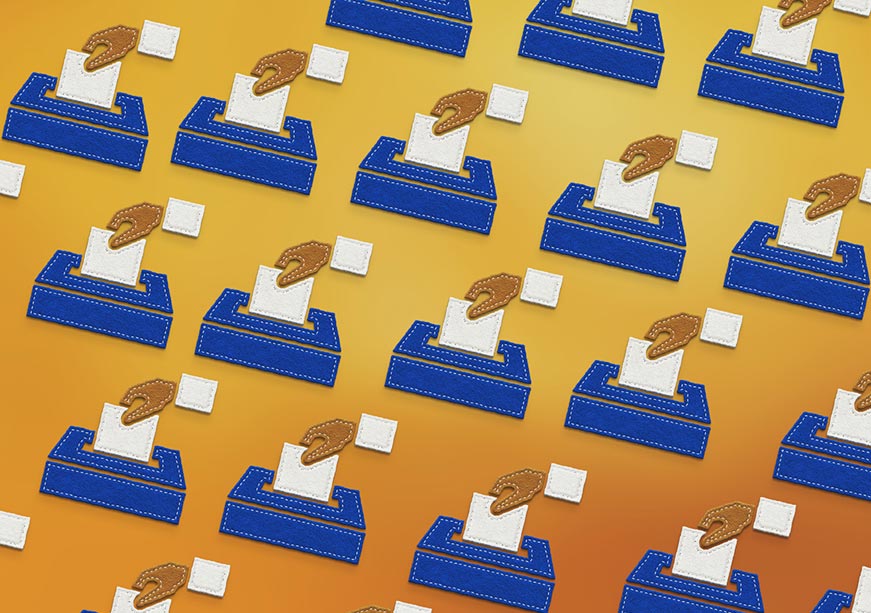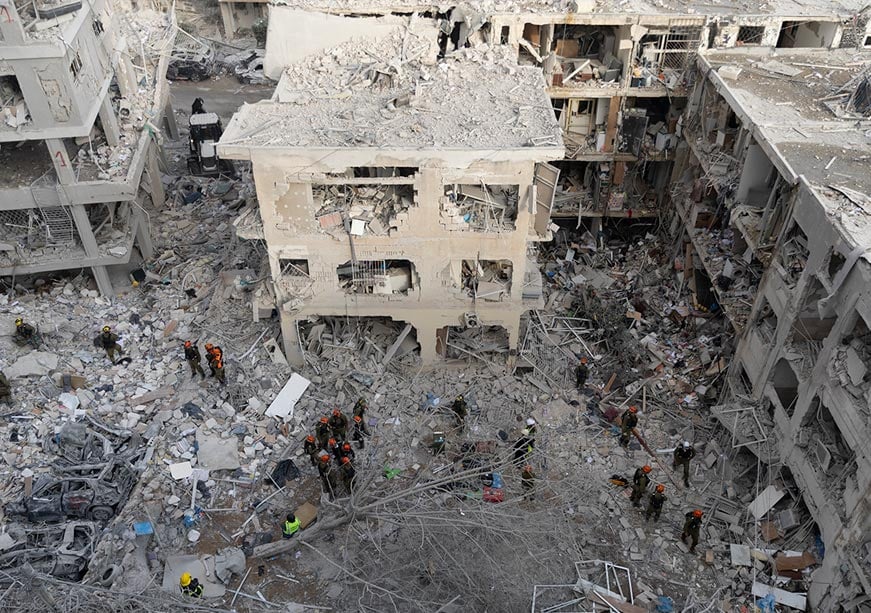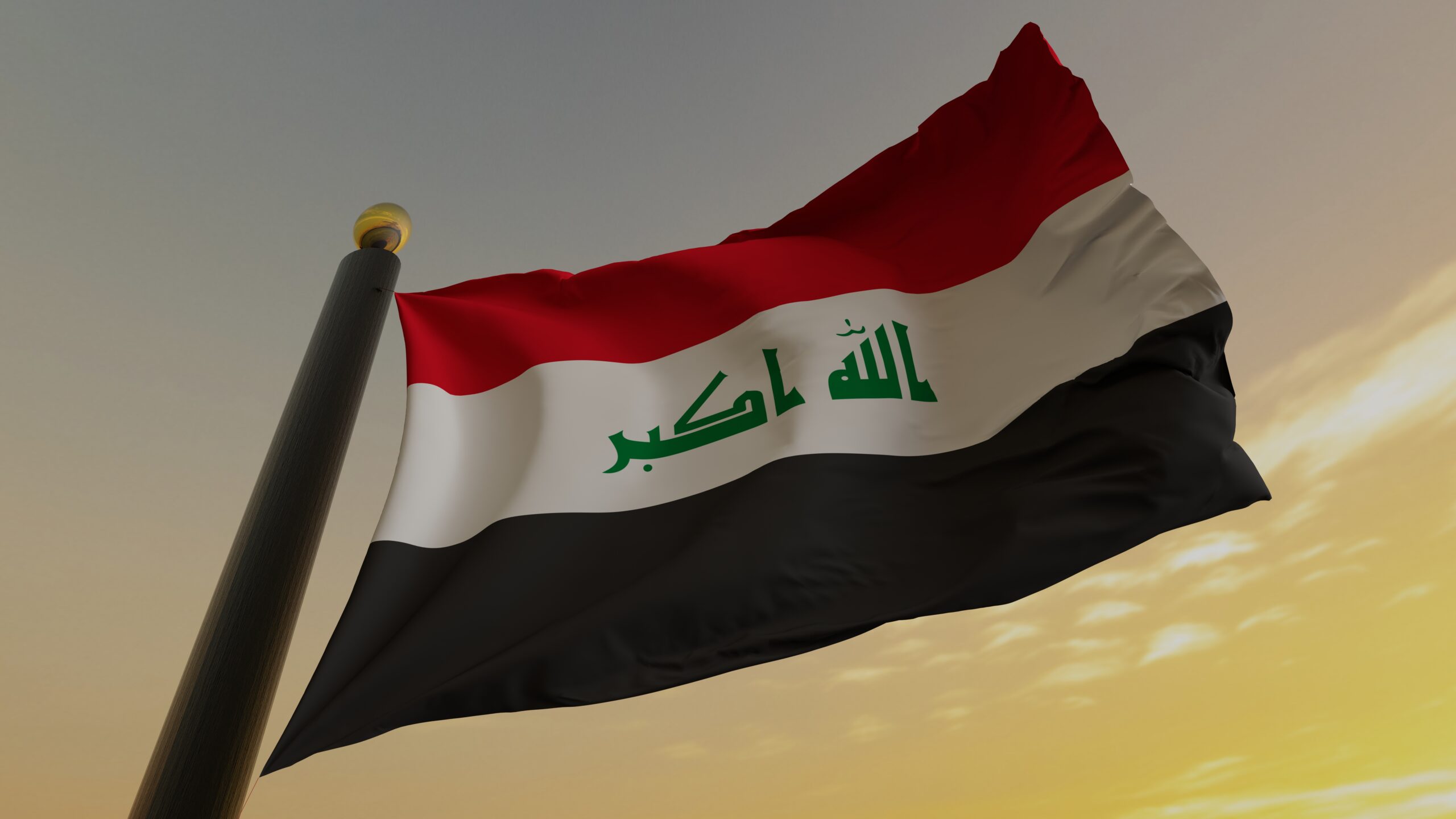As of 2024, the Gulf region has undergone a subtle but significant transformation in its landscape of political participation. Once largely characterised by electoral forms of legislative representation across most of its states, the region is now evenly split. Three Gulf states, namely Bahrain, Oman and the United Arab Emirates continue to hold some form of national elections, while Qatar, Saudi Arabia and at least temporarily, Kuwait, do not. This evolving reality underscores the need to revisit the current state of political participation in the Gulf.
Overview of Parliamentary Bodies in the Gulf
United Arab Emirates (UAE)
The UAE’s 40-member Federal National Council (FNC) serves as a unicameral advisory body. The council is typically renewed every four years, with the most recent renewal in 2023. The number of seats assigned to each emirate is proportionate to its population, and Emirati women must occupy half of the council. Moreover, the council is equally distributed between those members who are appointed by the respective emirate rulers and those who are elected through an electoral college. Each emirate’s electoral college consists of members equal to at least 300 times the number of seats allotted to it and is chosen by the rulers.
The FNC plays a consultative role in the legislation process. While it cannot veto or pass laws, it can review federal bills for approval, amendment or rejection. Moreover, it can question ministers but not impeach them. It can also make recommendations to the cabinet and discuss any topic subject to the government cabinet’s tacit approval that it’s not against the high interests of the UAE. However, should such recommendations be rejected by the cabinet, it must notify the FNC of the reasons behind the decision. According to a study on the FNC’s 2011–15 term, its members have been discreetly able “to also ask questions of ministers to put forward legislative proposals and funding recommendations and to set up temporary committees [on various reform topics]”. Additionally, another study on later terms of the FNC found an increased number of parliamentary questions exercised by its members empowered the body, with the government increasingly relying on policy recommendations drafted by its members.
Kingdom of Bahrain
Bahrain’s bicameral National Assembly consists of an upper house referred to as the Shura Council comprising 40 members appointed by the King, and a lower house referred to as the Council of Representatives, also made up of 40 members but elected by constituent votes. Bahrain set this dual structure to ensure “optimal functioning of parliamentary work through the principle of mutual oversight between the two Chambers”. Both houses serve four-year terms, which may be extended by two years via royal decree.
The National Assembly holds limited authority. Notably, it cannot withdraw confidence from the Prime Minister, though it may do so for individual ministers with a two-thirds majority. Should the elected majority prove unable to cooperate with the Prime Minister, the matter is escalated to the king. However, members of the lower (elected) chamber can review bills passed by the cabinet, and amend, approve, or reject them before forwarding them to the upper (appointed) chamber. Additionally, any member can propose legislation, which is subsequently referred to a specialised committee for evaluation. Parliamentary oversight mechanisms include the formation of investigative committees to scrutinise government actions, the submission of formal questions to ministries, and recommendation of policy measures for government action.
Sultanate of Oman
In Oman, the Parliament includes approximately 180 members, divided almost equally between the upper appointed chamber (the State Council) and the lower elected chamber (the Shura Council). Though both chambers share similar legislative powers, the Shura Council has exclusive rights to question ministers and review ministry reports. Nonetheless, all legislation must be approved by the Sultan, and even council-initiated proposals require initial ministerial approval. Moreover, all members are appointed for four-year terms, and the State Council is typically selected from elite categories such as former ministers, diplomats, judges, military officers, academics, business leaders, or others chosen at the Sultan’s discretion.
State of Qatar
Qatar’s 2004 Constitution mandated the transformation of its Shura Council to a partially elected unicameral parliamentary body. However, the elections were not enforced until October 2021. An academic study on the 2021 elections found that voters’ decisions were driven by tribe and family-related attributes. Until 2024, 30 members were elected and 15 were appointed, but when a referendum was approved to turn the 45-member council into a fully appointed one, the structure of the Council changed.
The Council is responsible “for proposing new laws, reviewing and approving draft legislation and decrees, as well as approving the state’s general budget”. Council members can direct questions to the Prime Minister or ministers to seek clarification on matters within their purview. They can also submit their interpellations to ministers regarding issues within their jurisdiction, although this process requires the approval of one-third of the Council members.
Kingdom of Saudi Arabia
In Saudi Arabia, the Shura Council serves as the unicameral parliamentary body. The Council consists of a chairman and 150 members chosen by the King from “among people of knowledge, expertise, and specialization”. The Council may propose new laws or suggest amendments to an existing law by studying it within the Council, later submitted to the King. Therefore, the Shura Council fits in two steps within the legislative process: at the beginning of the proposal stage, or in the review stage before its finalisation.
State of Kuwait
Lastly, until its dissolution in 2024, Kuwait had a unicameral parliamentary body known as the Kuwait National Assembly, which was fully elected. The Assembly comprised 50 Members of Parliament (MPs) who were directly elected through universal suffrage and secret ballot. Alongside the elected MPs, cabinet ministers, appointed by the emir, also sat in the Assembly as ex-officio members. These ministers had voting rights on all matters except motions of confidence. MPs had the authority to interpellate cabinet ministers and the prime minister on issues within their remit, which could lead to motions of no-confidence. Additionally, the constitution allowed the Assembly to initiate a motion of no-cooperation specifically targeting the prime minister. These mechanisms contributed to persistent legislative-executive deadlock, ultimately resulting in the Assembly’s dissolution.
The parliament’s dissolution may have arisen from popular backing. This insight comes from Arab Barometer data of 1,210 face-to-face interviews conducted between 14 February and 18 March 2024: only a few months before the parliament’s dissolution in May 2024. Many Kuwaitis viewed the National Assembly as an obstacle to effective governance, with 66 percent believing it slowed down the government and 60 percent agreeing that the government could have achieved more without parliamentary constraints. Only 39 percent saw MPs as qualified, compared to 50 percent for government ministers, indicating widespread dissatisfaction with parliamentary performance.
Rethinking Participation in the Gulf States through Electronic Platforms
Signs of a decline in electoral systems, as evidenced by Qatar and Kuwait lately, may be accommodating a young population across the GCC that prefers other outlets for political participation. Countries outside the definition of ‘liberal democracies’ have increasingly used technology for political and administrative purposes. This includes e-government systems and e-participation initiatives. While participation in politics is a characteristic of liberal democracy, it is not restricted to that form of government. Many other countries incentivise political participation for deliberative or legitimisation purposes, and technology can aid in that. For the Gulf countries, a young population may mean that digital tools are viewed as more useful for deliberative practices than traditional institutions, and this could be the path forward for the region.
Qatar and Saudi Arabia serve as an example to this end; despite having no national elections, they have moved forward with e-participation. For example, Saudi Arabia was ranked first in the Gulf and seventh in the world for its UN e-Participation ranking in 2024. Its Tafaul Platform has had 2,187 consultations with the public, engaging them across topics spanning Education, Health, Environment, Justice, Labor/Human resources, and Social Protection or Social Development. It lists 72.8 million users and 133.3 million visits since January 2025. Meanwhile, Qatar’s Sharek Platform has a forum where users can respond to questions such as “Should standardization testing in education be increased or decreased?” It also has polls and policy consultations.
Conclusion
While electoral mechanisms have persisted or evolved in some states like the UAE, Bahrain, and Oman; they have paused or retreated in countries like Kuwait and Qatar, while never having been adopted in Saudi Arabia. Having developed an overview of the state of parliamentary bodies in the Gulf, it was also important to look ahead towards the embrace of digital platforms for consultation, which illustrates that Gulf governments may be reimagining participation beyond ballot boxes. Such tools require further research and examination as to the role of technology in the future of the Gulf’s political participation.
Mahdi Ghuloom is a Junior Fellow, Geopolitics at the Observer Research Foundation (ORF) – Middle East.











